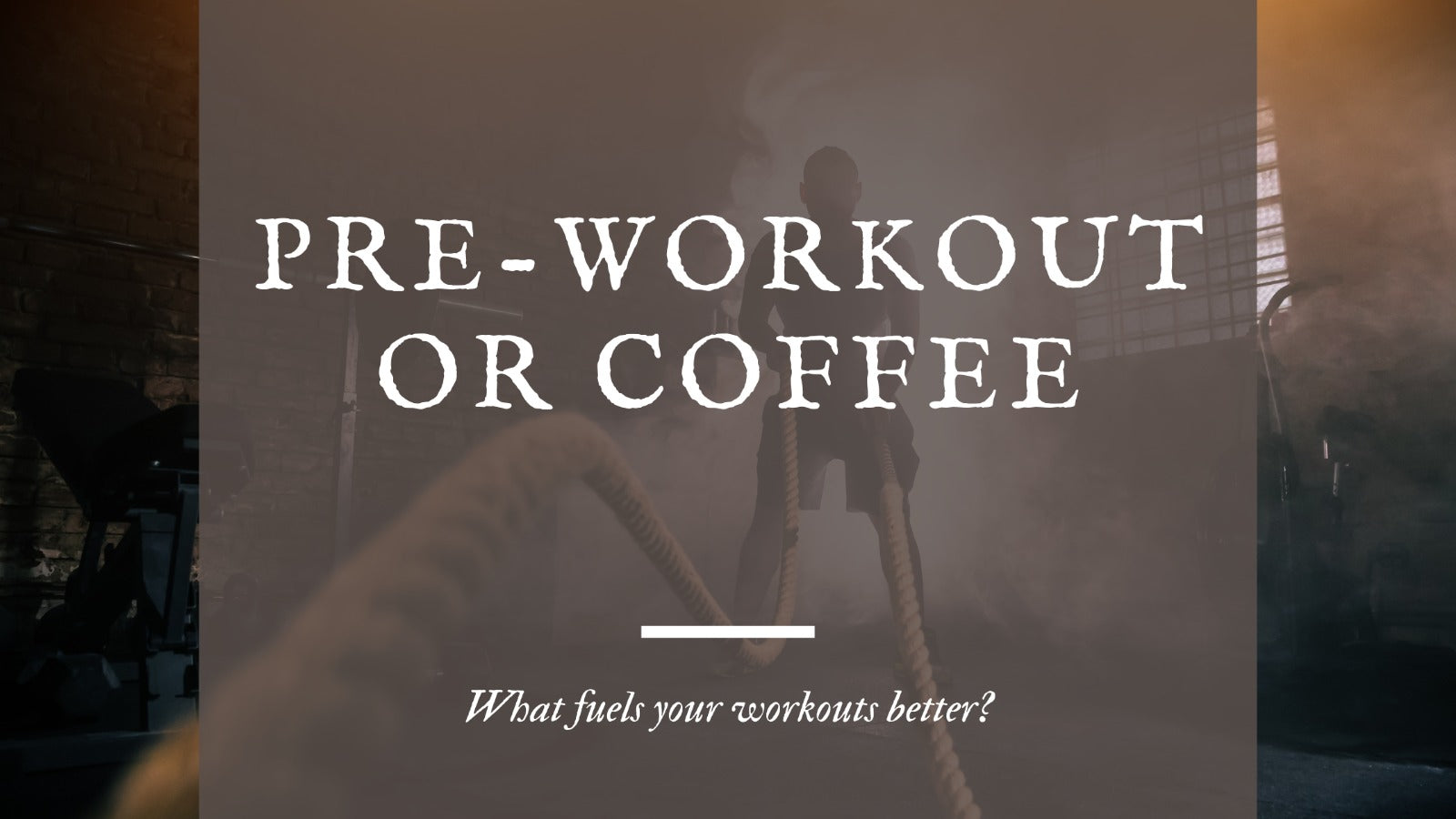
Pre-Workout or Coffee: What Fuels Your Workouts Better?
Introduction
You’re about to hit the gym, but you’re feeling sluggish. The question pops up: Should I grab a cup of coffee or scoop some pre-workout powder?
Both options promise energy and focus—but they work in different ways. Coffee is the classic go-to for a quick boost, while pre-workout supplements are designed specifically for exercise performance. So, which one actually fuels your workouts better?
Think of it like choosing between an old reliable car and a sports car. Coffee is dependable and simple, while pre-workout is engineered for performance. But which one gets you to your fitness destination more effectively? Let’s find out.
Table of Contents
1. What Is a Pre-Workout Supplement?
Pre-workout is a powdered supplement designed to boost energy, endurance, and focus before exercise. Ingredients vary by brand but usually include:
- Caffeine (for stimulation)
- Beta-alanine (reduces fatigue)
- Creatine (supports strength and power)
- Citrulline malate (improves blood flow and pumps)
It’s essentially a cocktail engineered to help you push harder in training.
2. What Does Coffee Do for Energy and Performance?
Coffee is the classic energy booster thanks to its natural caffeine content. One cup (8 oz) typically has 80–100 mg of caffeine.
- Boosts alertness
- Improves mood and focus
- Enhances endurance (proven in sports science studies)
It’s simple, natural, and widely accessible—no fancy tub required.
3. The Role of Caffeine in Both Options
The key similarity: caffeine is the driving force behind both coffee and most pre-workouts.
Pre-workout: Can contain anywhere from 150–350 mg of caffeine per serving.
Coffee: A cup provides a moderate 80–100 mg.
So, pre-workout often delivers 2–3 times more caffeine than coffee, plus other performance enhancers.
4. Pre-Workout Benefits for Exercise
- Increased strength and power – Thanks to creatine and citrulline.
- Better endurance – Beta-alanine delays fatigue.
- Bigger pumps – Ingredients improve blood flow to muscles.
- Laser focus – High caffeine plus stimulants sharpen concentration.
If your goal is maximum performance, pre-workout provides a well-rounded boost.
5. Coffee Benefits for Exercise
- Affordable and accessible – No need for expensive supplements.
- Moderate caffeine – Enough to improve energy and focus without overwhelming the body.
- Antioxidants – Coffee naturally contains compounds that support overall health.
Coffee is simple yet effective, especially for endurance-based workouts.
6. Pre-Workout vs. Coffee: Energy and Focus
Pre-workout: Delivers a more intense, longer-lasting energy boost.
Coffee: Offers a smoother, moderate increase in alertness.
If you’re sensitive to stimulants, coffee may feel more manageable.
7. Pre-Workout vs. Coffee: Strength and Endurance
Pre-workout: Wins here, since added ingredients like creatine and beta-alanine enhance both strength and endurance.
Coffee: Helps with endurance but doesn’t directly support muscle power.
For weightlifting or high-intensity training, pre-workout edges out coffee.
8. Pre-Workout vs. Coffee: Fatigue and Recovery
Pre-workout: Beta-alanine reduces muscle fatigue during intense sessions.
Coffee: Helps reduce perceived exertion but doesn’t aid recovery directly.
Both can delay tiredness, but pre-workout has more targeted benefits.
9. Side Effects of Pre-Workout
- Jitters and anxiety (from high caffeine doses)
- Tingling skin (from beta-alanine, harmless but uncomfortable)
- Sleep disruption (if taken late in the day)
10. Side Effects of Coffee
- Stomach upset (for some people)
- Mild dehydration if consumed in excess
- Sleep disruption when consumed late
Coffee’s side effects are generally milder due to lower caffeine content.
11. Which Is More Cost-Effective?
Coffee: Much cheaper, especially if brewed at home.
Pre-workout: More expensive due to added ingredients and branding.
If budget matters, coffee is the clear winner.
12. Which Is Better for Weight Loss Goals?
Both can help:
- Pre-workout: Increases calorie burn by enhancing workout intensity.
- Coffee: Boosts metabolism and can help control appetite.
Both are effective, but pre-workout may push workouts harder, leading to more calories burned.
13. Lifestyle Considerations: Natural vs. Supplement
Coffee: Natural, plant-based, with added health benefits.
Pre-workout: Synthetic blend, targeted at fitness performance.
If you prefer natural sources, coffee might align better with your lifestyle.
14. Can You Combine Coffee and Pre-Workout?
Technically yes—but be careful. Both contain caffeine, so combining them can push your intake too high, causing jitters, anxiety, or heart palpitations.
If you want to combine, opt for half servings and track your caffeine intake.
15. Final Thoughts: Which Should You Choose?
So, pre-workout or coffee: which fuels workouts better?
- Choose pre-workout if you’re chasing maximum strength, endurance, and focus in the gym.
- Choose coffee if you want a simple, affordable, natural energy boost without extras.
At the end of the day, both can get you moving—it’s just about whether you prefer the sports car or the reliable classic.
FAQs
1. Is pre-workout stronger than coffee?
Yes, pre-workout usually contains more caffeine and extra ingredients that boost performance.
2. Can coffee replace pre-workout?
Yes, for many people coffee is enough to improve focus and endurance.
3. Does pre-workout burn more fat than coffee?
Not directly—both help indirectly by boosting workout performance and calorie burn.
4. Is it safe to drink pre-workout every day?
Yes, if you stay within safe caffeine limits, but cycling off occasionally can help avoid tolerance.
5. Which is better for beginners: pre-workout or coffee?
Coffee is usually a gentler starting point before experimenting with pre-workouts.